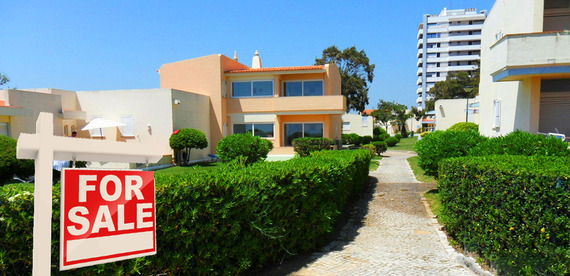A Cynic's Guide To Buying Property Overseas
"Nine out of 10 of the guys trying to sell you a piece of property in the developing world would cheat you given half a chance and without giving it a second thought."
Jeez ... was that me talking? When did I get so cynical?
"Do you mean agents or developers?" my new colleague asked.
"I mean everybody. Agents, brokers, developers, land-owners ... anybody with whom you might have a conversation about buying a piece of real estate in an unregulated market."
It sounds a bold statement ... incredible. But if I'm exaggerating, it's only a little to make a point.
And the point is this: The rules to do with buying a piece of real estate change when you leave the developed world and enter the emerging one. No, that's not right. It's not that the rules change. It's that, in the undeveloped world, there are no rules.
Right now, I know of a high-profile developer in Nicaragua who, for six years, has been selling land he doesn't own.
I know of a developer here in Panama who, for years, has been selling land he doesn't "own," at least not formally. It's rights of possession land. The developer assures buyers that rights of possession is "as good as title." But it's not. He knows it's not. Now you do, too.
I knew a developer 25 years ago on the Honduran island of Roatan who made a business, for a while, selling land he didn't own. He took US$20,000 deposits from buyers for about a year...then he disappeared into the Caribbean. As the guy selling the lots didn't own them...the people buying the lots realized, too late, that they didn't own them either. What were they to do?
I knew a real estate agent in Granada who told me one afternoon, over drinks, that he wished I'd stop banging the Buy Title Insurance drum so loudly. "It interferes with sales," he complained.
These guys aren't diabolical, necessarily. They're trying to make a living, and they're doing it in parts of the world where follow-through isn't always a priority.
I tell you these scary tales not to scare you...but to fortify you. The opportunities -- for fun, for a better life, and for profit--are great in many places that qualify as "emerging." But the pitfalls are many, too, and usually wholly unexpected.
When you entertain a conversation about the purchase of a piece of real estate in the United States, you do it confident of certain things. You take for granted, for example, that the person offering to sell you the piece of real estate owns it. You assume that he owns it freehold -- that is, that he has clear, unencumbered title.
If you're considering buying into a development, you believe that the infrastructure and amenities promised by the developer will be delivered. If his materials indicate that a marina will be built, then a marina will be built.
You don't worry that the price you're being quoted might be dramatically greater than the price being quoted for the same piece of real estate by another agent also representing it for sale. It would never occur to you that the same house, for example, could be listed with three different agents at three different prices.
You don't question the boundaries indicated by the seller...or the right-of-way ... or whether all the required permits for development and construction were obtained...
You take these things for granted, confident not only that you don't have to worry about them, but also that, should something go wrong, you'll have some recourse. There'll be some agency where you can file your grievance. And, worst case, there'll always be somebody you can sue...right?
There's no Honduran government agency that regulates the sale of real estate to foreign buyers, and how are you going to sue somebody in Nicaragua?
You aren't. So you need to make sure you don't end up in a situation where that seems your only option.
This living and investing overseas stuff is uncertain, unpredictable, and by no means guaranteed. Markets go down as well as up. Administrations turn over. Investment climates cool. Promised infrastructure is sometimes not delivered. People are cavalier in their representations of the facts, optimistic in their visions of what's to come.
Being not-local, you're operating at a big disadvantage. Plus, when shopping for, negotiating the price of, and purchasing property in another country, it can be hard to know, with certainty, who in the conversation is on your side. Not the seller's agent or attorney, certainly, but maybe not your agent either. Not your agent's attorney. Not the developer you're buying from. And not his attorney either.
Here's the exception, the one guy you should be able to trust to protect your interests: your attorney. Your attorney is not your agent's attorney, not the developer's attorney, and not the seller's attorney. He is separate, unique, and independent, beholding to nobody sitting around the bargaining table but you.
Finding a good local attorney, one who speaks English and who has had experience with foreign property buyers, should be your priority when you enter a new market, your first order of business, best accomplished before you begin scouting, searching, or viewing.
Original Feature: Why An Attorney Is So Important When Buying Property Overseas
Related Articles:
Earlier on Huff/Post50:





